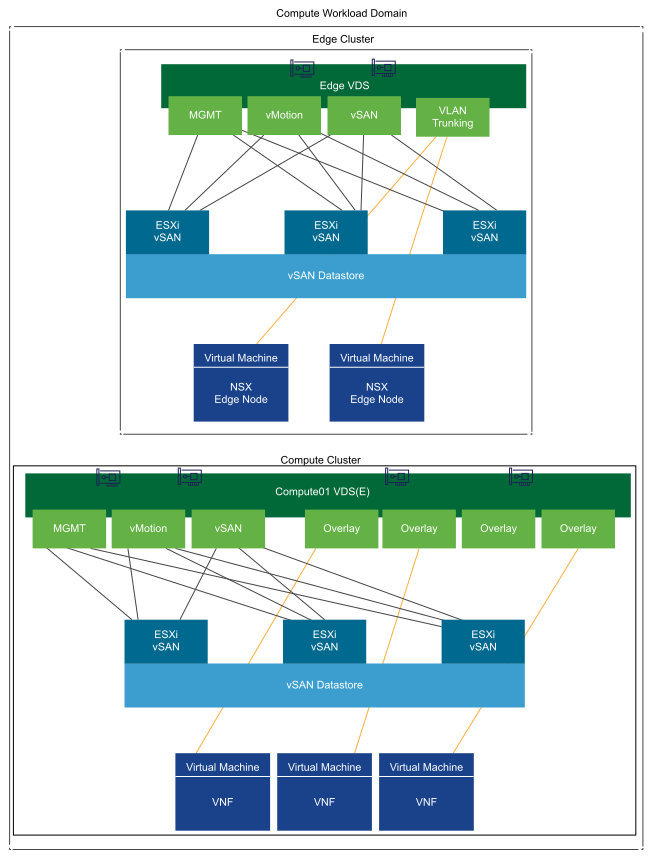This architecture consists of a centralized management workload domain along with workload domains to support the required workloads.
Management Workload Domain
The management workload domain contains a single vSphere cluster called the management cluster. The management cluster hosts the VMs that manage the solution. This cluster is crucial for the management and monitoring of the solution. Its high availability deployment ensures that the management and monitoring services are always available.
Component |
Description |
|---|---|
Management vCenter Server |
Manages the Management Workload Domain |
Compute vCenter Server |
Manages the Compute Workload Domain |
NSX Manager |
Operational and central control plane for software-defined networking, implemented as a cluster of three VMs |
VMware Cloud Director |
VMware VIM |
vRealize Suite Standard |
Includes vRealize Log Insight and vRealize Operations |
vRealize Network Insight |
Communicates with the vCenter Server and NSX Manager instances to collect metrics that are presented through various dashboards and views |

Compute Workload Domains
The compute workload domain can contain multiple vSphere clusters. These clusters can contain a minimum of two ESXi hosts and a maximum of 96 or 64 hosts (when using vSAN), depending on the resource and availability requirements of the solution being deployed.
The Edge cluster, which hosts NSX Edge VMs, is part of the compute workload domain. This cluster provides virtualized network services such as load balancers and the north/south routing infrastructure to support the workloads.
Each compute workload domain can support a maximum of 2000 ESXi hosts and 25,000 VMs. If you use other management and monitoring tools, the vCenter maximums are not applicable and the actual number of ESXi hosts and VMs per workload domain is fewer.
